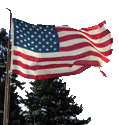|
|||||||||||||||||||||||||||
|
The Secret - Why the Rich Get Richer
Unlimited Wealth
Wealth is unlimited because it is based on the services of helping other people and on natural resources which have been developed by technology.
Get the right definition In the fifteenth century Astronomy was defined as "The study of how the Sun, Moon, Stars and Wanderers (planets) revolve about Earth." You can see why they never understood the motions of the heavenly hosts and they could never get their calendars right. Their working definition was wrong! They were attempting to study something that did not exist, and their results were always wrong. It wasn't until they changed their definition that they were able to understand the motions of the universe and to create accurate calendars, which are necessary for planting and harvesting crops. Today a typical college economics textbook has an introduction that says something like this, "Economics is the study of wealth based on our limited natural resources." As it turns out, there are two errors in that statement:
I want to point out one more thing. When I start talking about wealth and how you can rightly and justly have the wealth you want, invariably some people say that they don't think money is all that important and that it shouldn't be the number one thing in our lives. I never said it was "that" important. We’re discussing wealth, and I'm trying to put it into its proper perspective. Dismissing it altogether is not putting it into its proper perspective. Skip down now to read my Clarification.
Example 1: Cash is unlimited. Imagine with me that you have just won the Lottery, and your first payment is One Million Dollars ($1,000,000). You're in the PayOff office, and they're getting ready to give you the money. Question, What is the FIRST thing you're going to do with that money? The VERY FIRST thing. What? Here's the first thing you'll do with it: you'll put it into the BANK. They won't even hand you the money. They will simply put it into your bank account. All right, so you are now $1m richer, but where's your money? It's in the bank. Who then has it and can use it as his own? Why, YOU can, of course. But so can the bank. You can spend the money as you want, and as long as it's in the bank, you are drawing interest on it. You can take loans on it, using that money as the collateral. You are using the money and you are getting interest on it. But the bank is also using it. The bank is also loaning out the SAME money. The bank is also investing it and making money on it. You and the bank are both using the same $1m, and you're both benefiting from it. Suppose the bank loans out your $1m to a construction company? Now who owns it? You do, of course. But so does the bank. And so does the construction company. You see, the bank now holds a note that is worth $1m, and the bank can still use it and invest it, based on the value of the note. Three different people, or businesses, own the exact same million dollars, and they are all using it as their own. What does the owner of the construction company do with it? Maybe he buys some supplies. Maybe he meets payroll. Let's say he pays his employees with some or all of it. Where now is that money? It is in the hands of hundreds of people. Who owns it? You do. The bank does. And hundreds of people do. You can all use the same $1m as your own. What do these people do with it? They save some, they pay rent with some, they buy groceries with some, they pay bills with some. Now who owns the money. You do. The bank does. And the money is in GENERAL CIRCULATION. Everybody is using it. The point here is, Any number of people can use the SAME dollar at the SAME value. Money is unlimited. The trick, as you can see in this illustration, is not to let it pass through your hands, but to keep your name on it. As long as your name is on it, no matter where it is in the world, you are getting full use of it. You lose it when you consume it. That is, when you buy something. You may buy food, eat the food, and it's gone. You may pay your electric bill, use electricity, and it's gone. But as long as you don't give it up but keep your name on it, it's yours to use and you will continue benefiting from its ownership, no matter who else owns it or where it is in the world. Example 2: The British Monarchy The monarch of Great Britain receives an incredible allowance each year. The monarch might be the wealthiest person in England. She receives millions of dollars every year. What does the monarch do with all that money? She does two things. She puts some into her bank account, and she pays her enormous expenses with some. You already know what happens when it goes into the bank (from Illustration 1), so let's look at their expenses. She has two or more palaces on which to provide upkeep. She pays their myriad of accountants, advisors, butlers, caretakers, caterers, chauffeurs, cooks, electricians, laundresses, maids, security guards, tailors and others. Who are all those people, those caterers and maids and tailors? Are they royalty? No, they are from the populace. A great deal of the monarch's wealth goes directly into the pockets of the population who are employed for money. The rest of it goes into the banks, which as we have seen soon puts it into the hands of the people, too. So all the millions and millions of dollars paid to the monarch soon goes directly back to the people from whence it came. The monarch lives like a queen, but she can't eat the money, nor can she withhold it from the people. The only wealth the monarch has that she can keep from the people is the plot of ground she lives on, and over that face of the earth, that's not much. What about the crown jewels? She can't eat them. She can't spend them. She can only convert them to money and spend the money. Until that happens, they are nothing more than baubles of crystal and shapely pieces of ore. If you don't convert them to money, where is that money? It's already in the hands of the populace. Therefore to take the jewels from the monarchy and convert it to money and give the money (back) into the hands of the people will accomplish nothing more than taking pretty but useless baubles from a person. Oh yes, it will to do one more thing. It will prevent that person from employing those myriad of people, who will now have to go find jobs elsewhere. Wealth is never removed from circulation but is always being re-circulated time and again without limit. NATURAL RESOURCES Mercantilism is based on the theory that wealth comes from limited natural resources: gold, silver, other ore, trees, fresh water, fish, animals, arable land, oil, and so on. You sell gold, you get money. You sell lumber, you get money. You sell oil, you get money. Yet there is just so much gold, and then it's all gone. There is just so much land and when it's all used there is no more. When fish are all gone, they are all gone. Therefore it is important to preserve and replenish the limited natural resources. I agree, it is important to preserve and replenish limited natural resources. We would be sorely hurt if we did not. Yet, that is not where wealth comes from. Here are some examples to show what I mean. A London newspaper once flashed this terrifying headline: London Will Go Dark. The economists could foresee the total depletion of whale oil. They did not foresee that the first petroleum well in Pennsylvania would start pumping oil out of the ground. They did not know that petroleum would replace whale oil. In 1973 scientists estimated the world's oil reserves to be around 700 billion barrels, enough to list about 40 years. Thus began the fear. Gasoline prices skyrocket. People lined up at gas stations for blocks. They were assigned odd/even numbers. The odd-numbers people would buy gasoline on days that ended in an odd number. The even-numbers people would buy gasoline on days that ended in even numbers. People were scared. In 1987 people asked, Will we still run out of gasoline in AD 2013? The scientists said, "Oh no! You have about 900 billion barrels." And that did not include the 2,000 billion barrels yet untapped in the ground. Outcry. Rage. Anger. Frustration. "WHY?" the people asked. "Because," came the answer, "although we knew about the oil in Alaska, we didn't know you would invent the tundra drill. We didn't know you would build a pipeline across Alaska. We thought you could never get to it, and if you did get to it, you could never get it out. We didn't know you would invent the fuel injector, which cut automobile gasoline consumption by 50%.” And thus ended the oil scare. About 400 years ago some strong nations went to war over spices, especially nutmeg. It was dubbed the Nutmeg wars. Why go to war over nutmeg? Because it was important, then. It was used as a food preservative and people thought there was not enough to go around for everyone. Nutmeg, once a vital natural resource, is now little more than a luxury kitchen spice. Our inventions, technology, coupled with resources, have so increased our ability to use what we have that our necessary resources are now unlimited. Once we had carriages. Our industry was carriage making, horse breeding, horse shoeing, leather bridles and reins, and veterinarian medicine. Now it is road making, automobile making, petroleum production, gasoline stations, mechanics, and a continuous stream of new inventions and computers to go inside the car. Once, a hundred years ago, we (in the USA) rode stagecoaches and trains from the east coast to the west coast. Today we take airplanes, cars, buses and trains (still). Think of the multiple billions of dollars created by these new industries. None of them created more gold. They just created more wealth.
Clarification Let me be clear about what I mean. I don't mean this world has only unlimited resources. I don't mean there is nothing more important than money. I do mean that you can have unlimited wealth without exhausting any world's resources and without falling into the materialism trap of placing an inappropriate and incorrect value on material goods. We ought to be wise, careful and diligent with our resources. We ought not hunt whales to extinction. We ought not pollute our waterways and remove all the land from wildlife usage. Nevertheless, I disagree with and stand against those people who would create false crises and use that hoax to manipulate other people to vote for them or to deliver to them inappropriate power and money. It is wrong to dismiss the proper use of wealth and resources, giving it without thought to those who would use it against us. There are things more important than wealth, and that when required to make a choice between spiritual duty and wealth, then wealth should come second. Nevertheless, I know that godliness, charity, wisdom and wealth are compatible. There is no spiritual reason you cannot be wealthy, but no one should sell his soul to buy wealth. See Bibliography for those who have explained it much better than I. Return to Example 1
|
||||||||||||||||||||||||||


